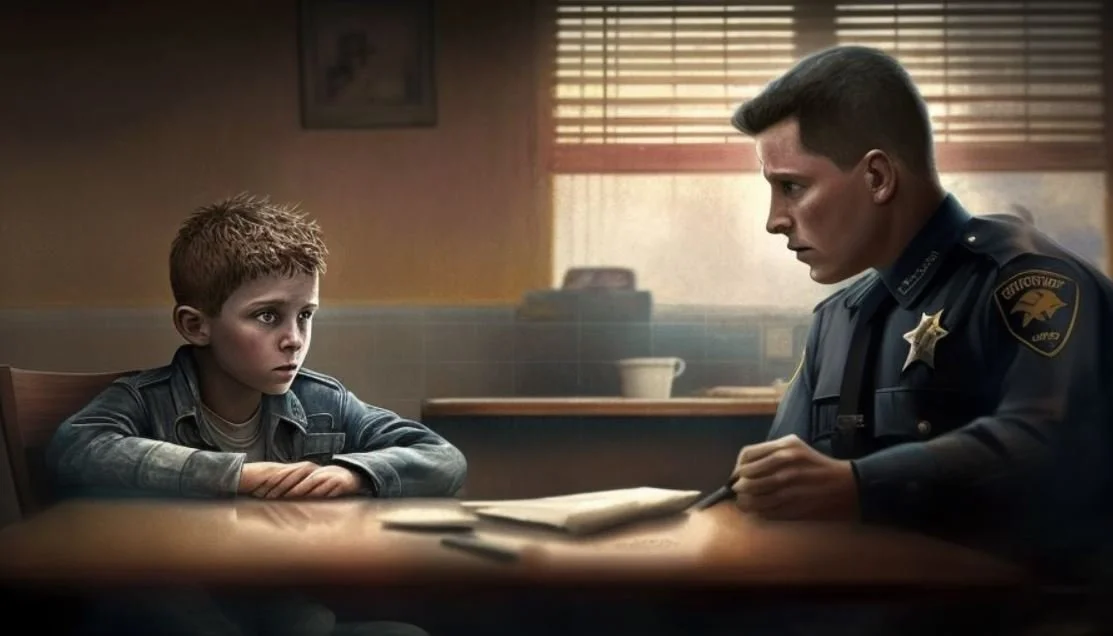Can a Police Officer Question a Minor without Parental Consent?
The question of whether a police officer can interrogate a minor without parental consent is a complex issue that involves careful consideration of the law, the rights of the minor, and the duties of law enforcement officers.
This article delves into the legal aspects surrounding this issue, as well as the practical implications for both minors and law enforcement. Ultimately, it is crucial for all parties involved to be aware of their rights and responsibilities in these situations.
Short answer:
Yes, a police officer can detain and question a minor without parental consent concerning any criminal activity. However, a parent’s absence during the questioning of a minor may affect whether the child's statement can be used in court.
Related Questions
-
In California, police can question a minor at school without parents present, but the minor has the right to remain silent and not answer any questions until their parents or a lawyer are present.
-
In Pennsylvania, police can question a minor without parents present, but minors have the right to remain silent and not answer any questions until their parents or a lawyer are present.
-
In Florida, police can question a minor without parents present, but minors have the right to remain silent and not answer any questions until their parents or a lawyer are present.
However, Florida law requires that parents be notified if their child is being questioned as a suspect in a criminal investigation, except in certain circumstances.
The Legal Landscape
Before diving into specific cases and guidelines, it is important to understand the overarching legal framework that informs the rights of minors and the powers of police officers.
The United States Constitution, specifically the Fourth and Fifth Amendments, serves as the foundation for the rights of all citizens when interacting with law enforcement.
Protection Against Unreasonable Searches and Seizures
The Fourth Amendment safeguards the right of individuals to be secure against unreasonable searches and seizures. This means that law enforcement officials must generally obtain a warrant based on probable cause before searching a person or their property.
However, there are exceptions to this requirement, such as when the officer has a reasonable suspicion that the individual is involved in criminal activity, or in cases where the person consents to the search.
Protection Against Self-Incrimination
The Fifth Amendment protects individuals from being compelled to be a witness against themselves in a criminal case. This protection extends to minors as well, meaning they have the right to remain silent and not answer questions that could potentially incriminate them.
The Role of Parental Consent
As a general rule, police officers are not required to obtain parental consent before questioning a minor who is suspected of being involved in criminal activity.
This is because the rights afforded to minors under the Fourth and Fifth Amendments do not explicitly mandate the involvement of a parent or guardian.
However, there are specific guidelines that must be followed to ensure that any questioning conducted is lawful and respects the rights of the minor.
The "Special Care" Doctrine
While parental consent is not a strict requirement, the Supreme Court has recognized that minors are entitled to "special care" when it comes to interactions with law enforcement.
In the landmark case of In re Gault (1967), the Court held that minors have the right to due process, including the right to be notified of the charges against them, the right to legal representation, and the right to confront witnesses.
As a result of this ruling, law enforcement officers are expected to take special care when questioning minors to ensure that their constitutional rights are not violated.
This may include providing clear explanations of their rights and the consequences of waiving them, as well as ensuring that any waiver of rights is made voluntarily and with a full understanding of the implications.
Practical Implications and Considerations
Miranda Warnings and the Presence of a Parent or Guardian
In situations where a minor is taken into custody, the police are required to provide Miranda warnings, which inform the individual of their right to remain silent and to have an attorney present during questioning.
While the presence of a parent or guardian is not strictly required, many jurisdictions encourage or require law enforcement officers to attempt to contact a parent or guardian before questioning a minor.
This practice is aimed at ensuring that the minor fully understands their rights and the consequences of waiving them. The presence of a parent or guardian can also provide additional support and guidance to the minor during the questioning process.
Voluntariness of Statements
Another critical consideration in these situations is whether the minor's statements were made voluntarily. Courts have held that involuntary statements, whether made by an adult or a minor, are inadmissible in court.
Factors that may be considered in determining the voluntariness of a statement include the age and maturity of the minor, the presence or absence of a parent or guardian, the nature of the questioning, and whether the minor was subjected to any coercion, threats, or promises.
Juvenile vs. Adult Court
The manner in which a minor is questioned can also have implications on whether their case is handled in juvenile or adult court.
In some instances, if a minor's rights are not adequately protected during questioning, a court may determine that their case should be transferred to juvenile court, where the focus is more on rehabilitation than punishment.
Law Enforcement Training and Policies
Given the complexities and potential pitfalls involved in questioning minors, many law enforcement agencies have developed specific policies and training programs aimed at ensuring that officers understand and adhere to the legal requirements and best practices in this area.
These policies often emphasize the importance of taking special care when questioning minors, contacting parents or guardians when possible, and documenting all interactions with minors to create a clear record of the circumstances surrounding any statements made.
Conclusion
While police officers are not generally required to obtain parental consent before questioning a minor, the law does require that special care be taken to protect the minor's rights and ensure the voluntariness of any statements made.
This includes providing Miranda warnings, attempting to contact a parent or guardian when appropriate, and conducting questioning in a manner that respects the minor's age, maturity, and vulnerability.
As a result, it is crucial for law enforcement officers to be properly trained and follow established policies and procedures when questioning minors.
At the same time, parents, guardians, and minors themselves should be aware of their rights and the legal protections afforded to them in these situations.
By understanding the legal landscape and practical considerations surrounding this issue, all parties involved can work to ensure that the rights of minors are protected, and that any interactions with law enforcement are conducted in a fair, lawful, and respectful manner.











Inside the Investigation: A Deeper Dive into Police Detective Benefits